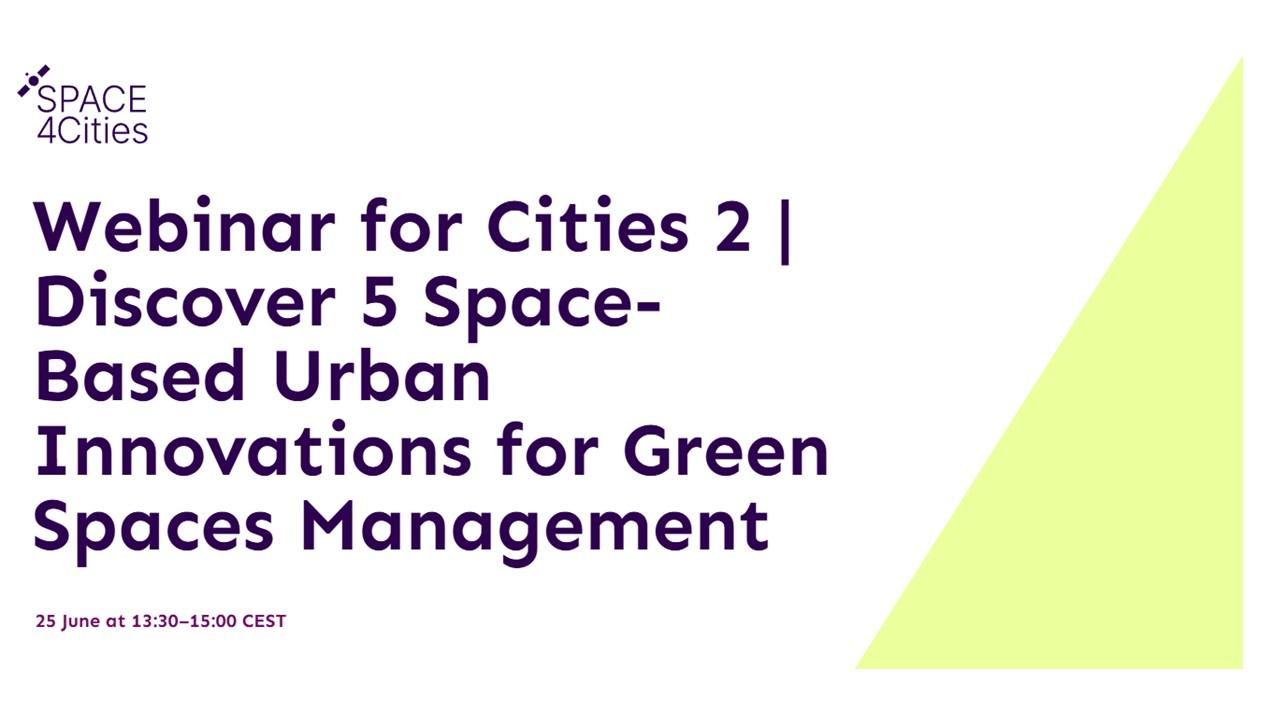SPACE4Cities Webinar Series | Session 2: Green Spaces Management
Urban green spaces play a vital role in enhancing public well-being, mitigating heat, improving air quality, and supporting biodiversity. However, maintaining these spaces effectively is increasingly challenging due to urban expansion, climate stress, and limited on-the-ground resources.
Satellite data offers cities a powerful tool to monitor and simulate vegetation health, detect changes in canopy cover, map species and track seasonal trends at scale and over time. These insights enable more efficient irrigation planning, early detection of stress or disease, and prioritisation of maintenance efforts.
By integrating satellite-based monitoring into urban management systems, cities can better safeguard their green and blue infrastructure, optimise resource use, and enhance environmental resilience in the face of growing ecological pressures.
This session will showcase five of the twenty innovative solution concepts developed by leading European experts and organisations, currently being advanced with support from the SPACE4Cities project. Each solution is designed to address, in their own unique way, the above-presented urban challenges using satellite data and geospatial insights. Participants will have the opportunity to engage directly with the innovators, ask questions, and offer feedback—helping to shape the relevance and impact of these tools for cities and communities across Europe.
Agenda
13:30-13:35 | Session introduction (Alex Gluhak, OASC)
13:35-14:25 | Solution presentations x 5 (10 mins each)
- VISTA: Predictive Insights for Green Infrastructure Vitality and Nature-based Climate Resilience (Nora Van Cauwenbergh, BitaGreen)
- UrbanROOTS: EO for Monitoring Urban Green Spaces Dynamics (Andre Dias, CEiiA)
- InfrAtlas : smarter, safer urban greening to fight against Shrink–swell phenomenon (Edouard Boucher, OPTIM.AIZE)
- Copernicus EO combined with TEDAT balloon flights for high-resolution thermal imaging of the city (Olga Bodet, Zero Gravity Oy)
- Climate Impact Chain Application for Decision-making and Adaptation (Jan Ausficír, ASITIS)
14:25-14:55 | Panel discussion Moderated by Alex Gluhak, involving all speakers
14:55-15:00 | Session wrap-up (Alex Gluhak, OASC)








